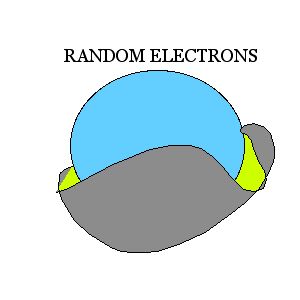
 |
|
ACCOUNTING 101-- Debits and credits. Terminology of a profession. Positives and negatives. Income and expenses. Checks and balances. That is the heart of accounting. Numbers. Pure numbers. Basic math. Grade school stuff. How difficult is it to add, subtract, multiply and divide? Well, if you are major corporation, apparently it is difficult. You spend millions on auditors to review your number crunching to certify to the public that your books are not cooked.
ACCOUNTING 102-- Crunching numbers is boring. Snore-ville. Did you really get up each morning when you were a kid with the zealous wide-eyed yearning to get to math class? Of course not. People never paid that much attention to math because there were calculators, then computers to do the work for you. If not, you hire someone to figure out your taxes, balance your checkbook, or invest your retirement savings. And the bored accountants were more than willing to branch out from the numbers game and into ancillary services.
ACCOUNTING 103-- Accountants want to be computer technologists, lobbyists, or business analysts. The universe is described as consultant. We can do your tax and audit work, but we can also integrate your financial, business, and information systems. We can also advise you on valuations, business risks, business acquisitions. And when they sour, we can advise you on litigation, litigation management and document archiving. The more business models sold, the more work for the accounting firm's new hire hives.
ACCOUNTING 104 -- It must be something in the business management school world that the same type of Enronic problems are surfacing at various collapsing companies. Accounting was no longer a science, but an art form. Creative accounting was prized. For example, a company sells a million dollars of equipment to Client. However, client pays nothing, but gives company a note for a million dollars. Common sense says that company has not made any money yet, it has financed the whole deal. But creative accountant says it made a million dollars in income from the sale, and on another sheet adds the note as an asset and not an account receivable. The proponent then says the company has a two million gain. It doubles the overall balance sheet, but does not add a dime to the company's bank account. That's creative accounting. Kids in grammer school today can justify the answer of 11 for 1+1 because the formula contained two ones and putting two ones together, teacher, makes an eleven. That's the new, new math.
|